In Northern Ireland Opera’s new Tosca, the curtain rises on a big concrete dish from which a pair of eyes gaze down, impassive. Walls of scaffolding tower on three sides of the stage, creaking as they expand under the heat of the stage lights. Point taken: Cameron Menzies’s production (the sets are by Niall McKeever) is a semi-abstract updating. It’s a fairly standard contemporary approach to Puccini’s Napoleonic thriller, though whether you get the full impact that comes with a more period-specific setting – that sense of individuals being crushed beneath the wheels of history – is another question.
Anyway, that’s just how things are now and regular operagoers will be used to decoding the various surreal anachronisms that arise whenever a director sets out to cobble together a synthetic reality. Menzies does generate a potent atmosphere of entrapment and menace, and it’s a pity that he blunts the opera’s ending, with Cavaradossi picked off by cloaked figures on top of a sort of gantry, and Tosca throwing herself down the same flight of stairs that we’ve just seen Cavaradossi ascend. Sure, that’s got to hurt, but it doesn’t exactly look terminal.
Still, Tosca is a big exciting opera and this – the largest production in the company’s history – was a big exciting occasion, especially once the audience started to warm up. Cavaradossi was played by Peter Auty, a singer whose many fine qualities don’t really include sensuality. That gave a certain vulnerability to his big arias: the artist as boyish idealist, trapped between the more dangerous impulses of Tosca (Svetlana Kasyan) and Scarpia (Brendan Collins). With his knee-breeches and pervy facial hair, Collins made a plausible predator, singing with insinuating lyricism and a tone like black velvet. ‘Agile as a leopard’ is his drooling description of Tosca, and Kasyan was just that. Vocally, she could blaze, but she could also snarl and purr. She was proud, she was impulsive and she dispatched Scarpia without even removing her headdress.
Menzies might have done more to stoke the fires between this central trio: he was a little too ready to let them stand there waving their arms about. Against that, there were gutsy choral scenes plus the Ulster Orchestra sounding alert and alive under Eduardo Strausser, a conductor who clearly knows how to make this score sing. Grand Opera House is what it says on the front of the theatre, and grand opera is exactly what you get here. While the Arts Council pursues its vendetta against opera in England, it’s inspiring to see such unabashed ambition on the other side of the Irish Sea.
By the opening night of Das Rheingold at the Royal Opera (the first instalment of a new Ring cycle directed by Barrie Kosky) it felt as though a triumph had been pre-ordained, with Twitter (sorry, ‘X’) abuzz with excited leaks from the dress rehearsal. Despite that, it was compelling. Designer Rufus Didwiszus provides a single, multi-purpose set: a huge fallen and fossilised tree, from which the Rheingold gloops and spurts in a gooey hormonal discharge. Erda is on stage throughout – a shuffling, stark-naked crone, evoking unfortunate memories of the pratfalling, slow-moving granny in Cal McCrystal’s recent G&S productions.
Too bad. That’s the risk you take when, like Kosky, you live on your raw theatrical instincts; walking a treacherous path between sniggers and the sublime. But Kosky (unlike Richard Jones in his recent ENO staging) seems genuinely curious about Wagner’s intentions: he’s out to tell a story rather than cut Wagner to size. A simple spotlight and a revolve are used to suggest different layers of time. Why does Kosky drop the curtain between scenes, throwing the emphasis back on to the music, when Wagner designed a whole theatre specifically to make the orchestra an unseen, near-magical presence? Possibly he’d say that since Wagner’s time, film and TV have drained the all-pervading orchestral soundtrack of any remaining enchantment. This way, we’re made to listen, and to be aware that we’re listening. Wagner is being rewilded.
Das Rheingold is only a prologue, and Kosky presents his central characters, suitably enough, as overgrown adolescents, with Alberich (Christopher Purves) finding self-awareness after a sexually degrading debagging by the Rhinemaidens. The parallels with the equally bullet-headed Wotan (Christopher Maltman) are striking; both are vocally magnificent and perceptive in their characterisation. The gods, meanwhile, are a bunch of horsey Eurotrash arrivistes from the German edition of Hello!. By the end, Maltman is already recoiling from them, ageing visibly as he begins his long journey into self-annihilation. Loge (Sean Panikkar) dances around, cackling madly; his tenor coiling, flickering and flashing over the orchestra (Pappano sounded noticeably more animated, and sure-footed, than in his last London Ring cycle). Operas aren’t TV series – we’ve a long wait now until Die Walküre – but after this Rheingold I’d gladly have binged all night.
Got something to add? Join the discussion and comment below.
Get 10 issues for just $10
Subscribe to The Spectator Australia today for the next 10 magazine issues, plus full online access, for just $10.
You might disagree with half of it, but you’ll enjoy reading all of it. Try your first month for free, then just $2 a week for the remainder of your first year.

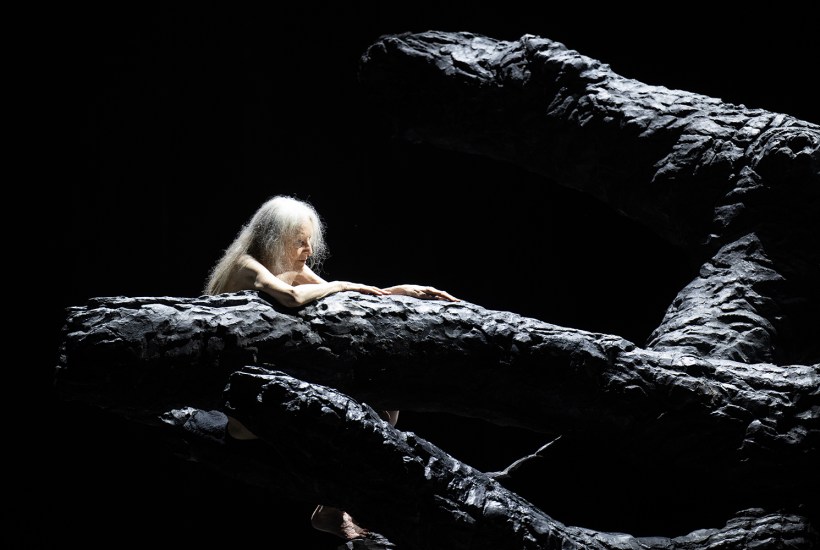
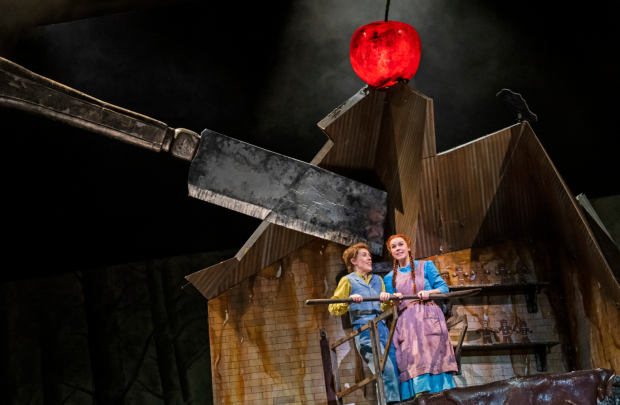
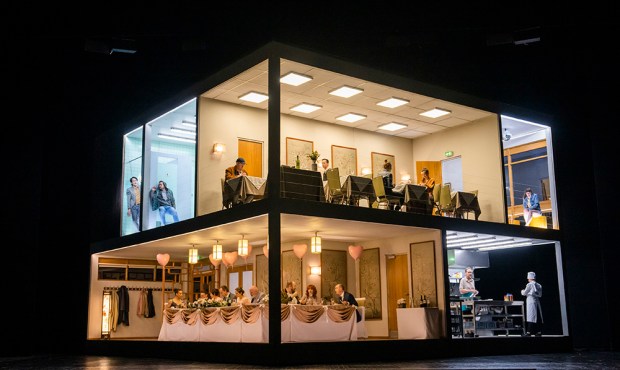
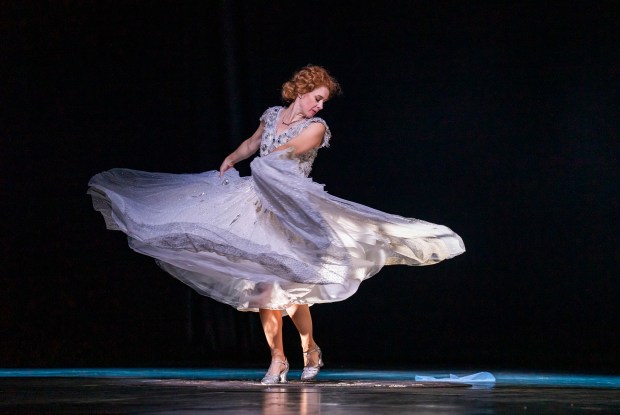

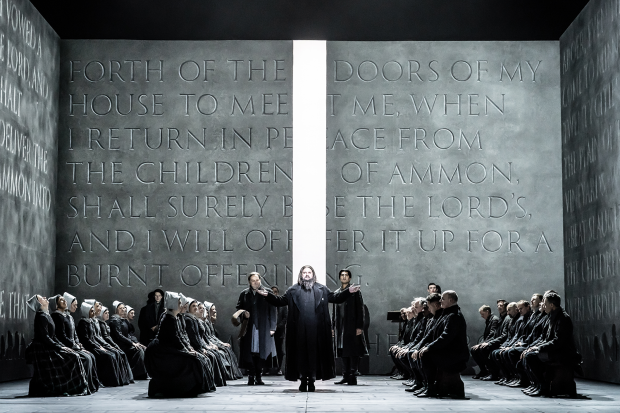
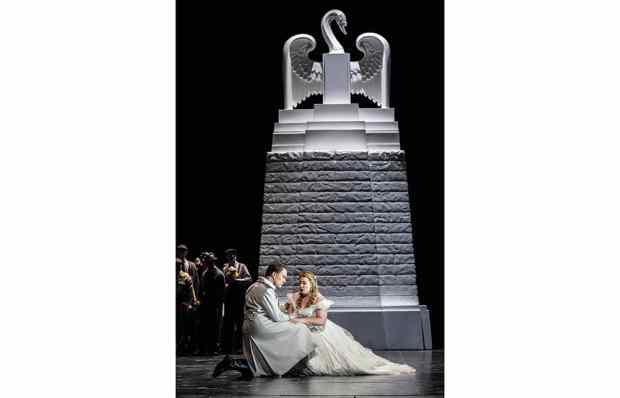






Comments
Don't miss out
Join the conversation with other Spectator Australia readers. Subscribe to leave a comment.
SUBSCRIBEAlready a subscriber? Log in